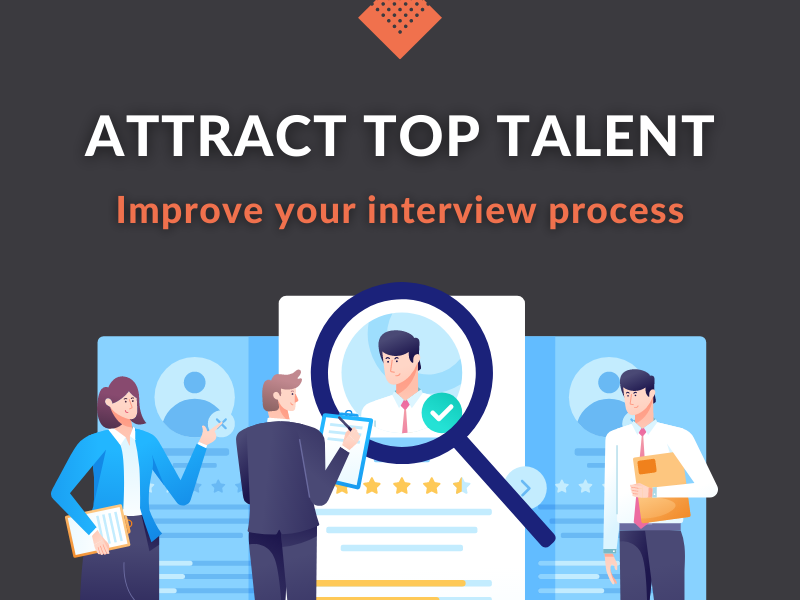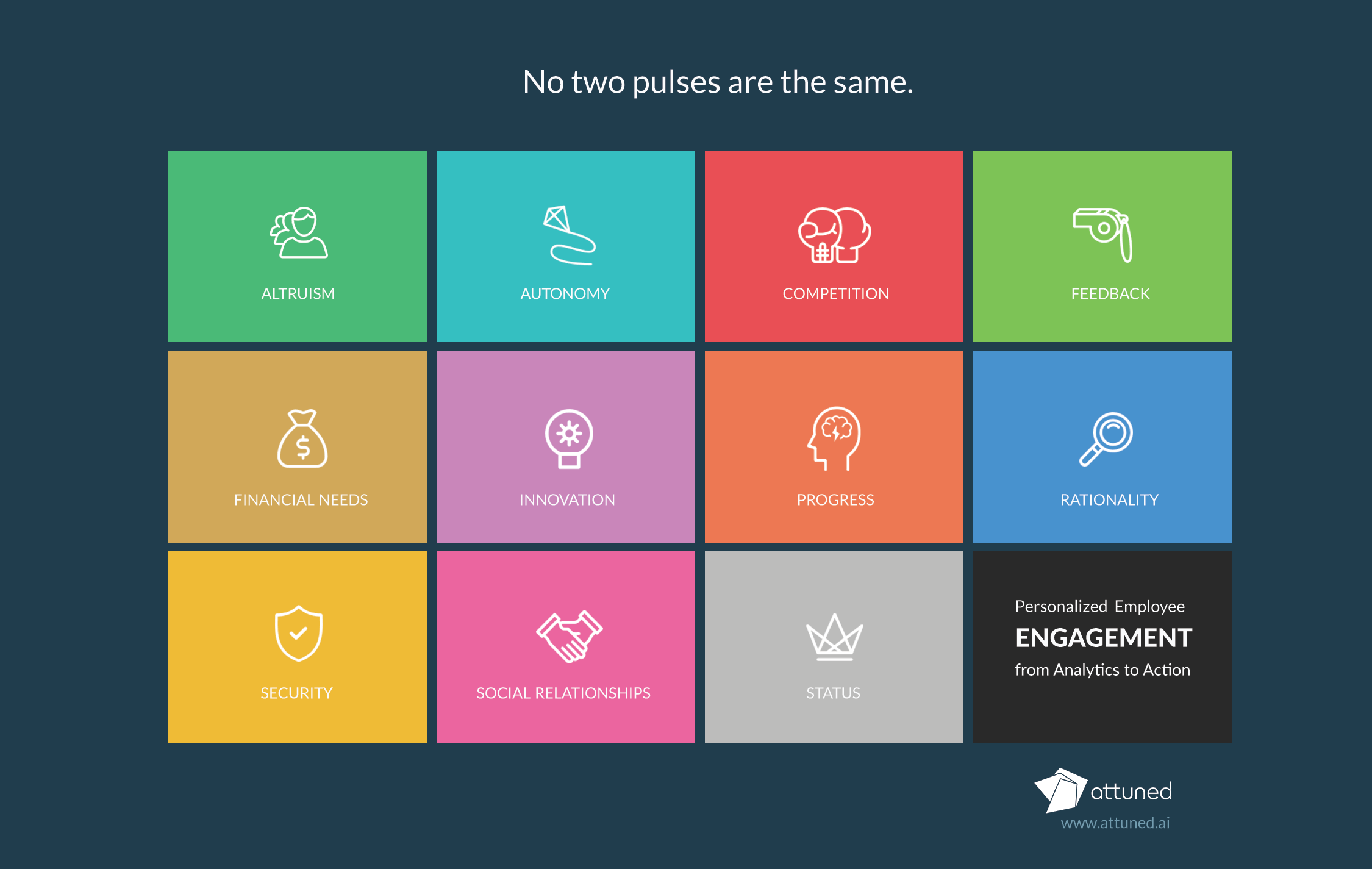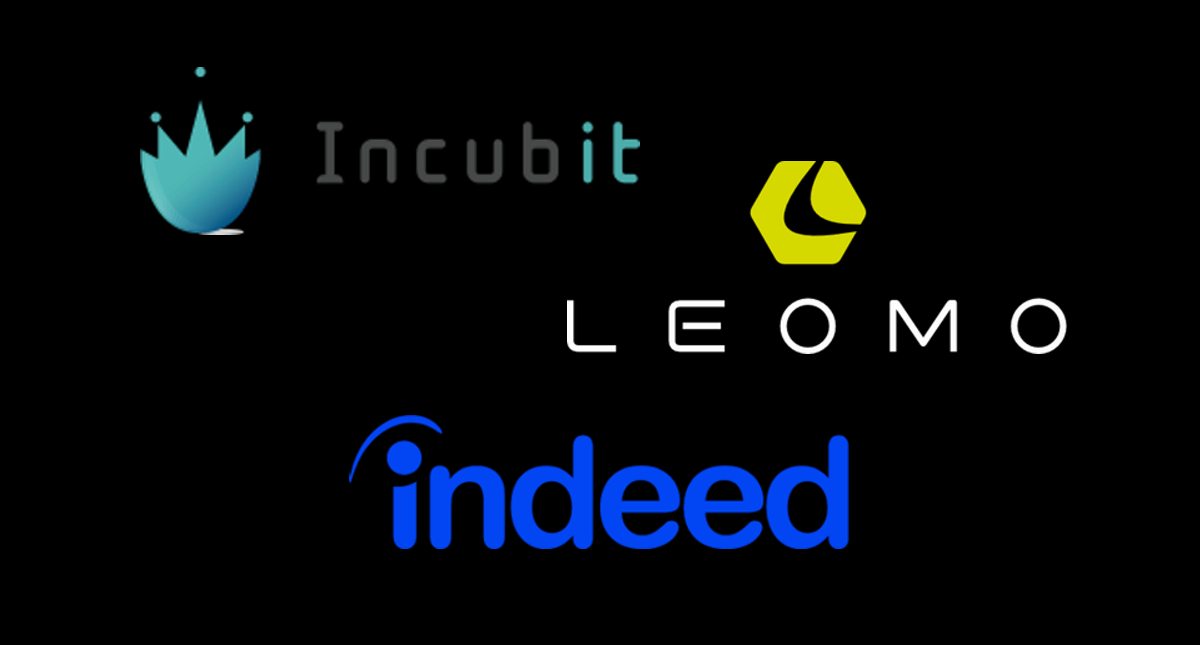How to Win Candidates & Influence People
It's hard to find good people.
And even if you manage to find someone you’d like to hire, it's hard to get them through the interview process and convince them to choose you over everyone else available in the market.
Whether you’re a startup trying to scale and build your core team, a multinational conglomerate trying to maintain your dominant position in the market, or somewhere in between, chances are you are facing some kind of challenge to get the amount of skilled talent you want.
The statistics are there to support your feelings. Excluding new school graduates (and including part-timers), The Japan Institute for Labour Policy and Training estimates as of September 2021, there are 1.16 active job openings-to-applicants, and 2.1 when it comes to new job openings.
In 2019, The Ministry of Economy, Trade and Industry estimated the deficit of tech workers could reach as high as 790,000 people. Nearly any report you look at will alarm you to the gradually aging population vs. availability of talent. This is not even considering bilingual ability.
I don’t need to look any of this up though as I see it everyday on the ground. As a recruiter, I talk to companies every day who are looking for skilled workers, and it is indeed a rare day when I meet a client who says there are no further needs in their organization.
Indeed, hiring in Japan can sometimes seem like a Sisyphean task with little payoff.
So the question remains:
How do you hire people in Japan?
The good news is that there are definite, concrete ways to increase your conversion rate and to improve the chances candidates will choose your company over others. What’s more is that most of them do not depend on your company’s profitability, scale, or product – simply how you deal with the interview process. And these are things you can change right now for immediate effectiveness.
I started my six years of recruitment in haken or ‘temp outsourced’ recruitment, and did so for about three years. As a part of the hiring process in Japan for haken workers, a representative of the agency has to attend the ‘client candidate meeting’ (which you cannot call ‘interview’) which means I have sat in on a lot of ‘meetings’.
This, of course, is a fantastic and insightful opportunity for a recruiter to be a part of, and even after shifting to recruitment for permanent positions, it’s kind of become a mission of mine to consult and improve my client’s interview process.
I’ve been in some great meetings, and I’ve been in some shockingly bad ones (on both the candidate and client side). Sometimes as a recruiter you keep sending candidates to a company but no one is getting through the process or you have to really work to sell that company after a meeting/interview, and if you sit in a few of these meetings, you can immediately realize why.
From my experience of being a part of over a hundred interview processes, here are 9 actionable tips I’d recommend to companies trying to hire candidates and stand out from the rest.
9 Tips for Hiring Candidates in Japan
1. Treat Candidates Like You Would Customers
For me, this would be the golden rule above all. If you really want to give candidates a good impression of your company and maximize your chances of accepting, treat them as you would your customers. And even if you are going to reject them, treat them like you would a future customer prospect – a sale might not happen now but maybe in the future.
Tip 1: Treat candidates like customers
If you think about it, adopting this frame of mind would inform all the rest of your practices for the interview process and you wouldn’t need any more advice.
Would you leave a potential customer of your company for a couple weeks before you got back to them?
Would you start firing questions at them in your meeting before understanding their needs as how your company’s product or service might solve them?
Would you say ‘this is the price and we’re not negotiating’ of your product or service to a customer who is getting a better deal somewhere else?
Of course not – but this is exactly what companies do to candidates interviewing at their company. They’re not a priority so they can wait; they have to tell us why we should hire them and not the other way around; they have higher offers elsewhere but they should join us for less if they really want to show us their commitment. All of these are very basic business practices that any company would be crazy to violate with their customers but commit on a daily basis with people who want to join them.
Why? Why is there this gap between customers and candidates?
My anecdotal explanation on the matter would be that companies are so focused on the symptoms of the problem that they are not seeing the underlying condition itself. Throw in an ounce of pride in the form of ‘this is how we’ve always done things’ and ‘if it’s not broken don’t fix it’ (it is) and it’s a recipe for murky introspection and inaction.
But hiring processes, and more importantly hiring mindsets have to evolve with the market situation.
2. Realize Candidates Are Interviewing You As Much As You're Interviewing Them
I once attended a 'candidate client meeting' where I met a candidate and we walked over to the client site just five minutes away from the nearest station. It was a humid Japanese day and in that half kilometer to the company's office we were sweating profusely. We dabbed what we could (before the sweat immediately began to reappear) and zipped up the elevator to the right floor. We were shown to a room as we tried to regain our composure.
A few minutes and no water offered later, four hiring managers line up across the table from the candidate and sit down. They say
“Please introduce yourself”. A bit disarrayed, the candidate explains his background.
“Why do you think you'd be good for our company?” another hiring manager fires from another direction. The candidate hastily reloads and answers.
“Do you have experience managing people?” the third one rattles off.
Tip 2: Realize that candidates interview you as much as you interview them
You get the picture. This would continue for a blistering 45 minutes before we exited the room not hearing a single name of who we just spoke to, a word about the project the candidate might be working on, and not a single second left for the candidate's questions at the end.
The candidate was flabbergasted. I was furious. Of course we both kept our composure until the mind's aircon kicked in, but it was an exhausting and somewhat traumatic experience. Needless to say, the candidate did not choose that job (unbeknownst to me until I heard from them, they actually liked him and later offered him the job) and it was clear that not only was that conducted horribly by the client but there was a dangerous misunderstanding of what an interview is supposed to be.
Interviewing is a two-way street: you have to sell as much as you are being sold. Candidates are assessing whether they should join your company as much as you are assessing whether they are a fit for you or not.
Maybe you have a situation where you are interviewing an unemployed person who desperately needs a job, but more often than not you’ll likely be interviewing a person with multiple processes going on (and even in the former case they should be treated with dignity and respect). Flowing from the mindset of treating candidates like customers, it's useful to think of an interview as trying to secure a sale.
In this highly competitive market, candidates are weighing the pros and cons of each company. Show them why they should work for you, and in the process assess the same. Show them the product or service; ask them what’s motivating their job change and show how your company can address those motivations; provide them with a clear image of what it’d be like to work there. Create some excitement and enthusiasm! You wouldn’t walk into a sales meeting with low energy, conveying the mood that this is some annoying task someone put into your calendar, and you shouldn’t bring that kind of energy to an interview. Don't fire questions off like you're typing to a chatbot—these are human beings you are speaking to and they might be potentially helping you as much as you are helping them.
In the aforementioned example, once I got back to the office I immediately emailed the company's internal recruiter/HR detailing the experience and gave some specific actionable points to improve their interview process. And greatly to the credit of that company, they completely changed the way they conducted meetings. In the next one I was a part of (for the same position), each person introduced themselves, they explained the company, the project, what they were expecting of the candidate, had time for questions at the end, and even some water when we sat down. They luckily liked that candidate as well and I filled the position.
3. Ask Yourself Why You Joined & Why You're Working There Now
When I ‘pick up a job’ and identify a new position or company I'll be recruiting for, I always have a meeting with that company before I jump into the search to find out more about them (as any sensible recruiter would). As the meeting is concluding, I always ask as a final question: “Why should someone join this company and why do you work here?”
Tip 3: Ask yourself why you joined the company
I don't know if it would surprise you, but a good one quarter to one third of these companies could not answer my question. To be clear, a quarter or third of the companies I speak to could not tell me why someone should work there. It's no wonder they have a hard time convincing people to join! It is the equivalent to showing up to a customer in a sales meeting, having them ask you why they should buy your product and you just saying “hmmm… not sure.”
To be generous, maybe it is a jarring question that they might not expect (though I'd hope that anyone could kind of muster an in-the-moment response at least). Or, I'd even go as far as saying that simply the reason has become obfuscated in humdrum of working at the company and recruiting to hit headcount targets.
But it's there. And if it's lost, then seriously just ask yourself why it is you joined the company and continue to work there.
Is it the name brand? Is it building something new? Is it a product-own company? Does it provide an international environment, good pay, flextime?
Whatever it is, it is important to keep those reasons on the ready for attracting candidates and, well, for your own motivation to keep going.
4. Get 'Big Picture': Share The Vision
I recently reconnected with a company that I had started working with maybe five years ago and we had fell out of touch. I attended the meeting with some of my colleagues who I briefly brought up to speed (what the company does, their product, etc) and naturally my colleagues wanted to hear more from the company itself.
We met the founder and when asked about the company, he gave a kind of general spiel about what the product is, some of their clients, what area they're working in. It was a bit lackluster. And as recruiters, often our motivation to recruit for a company can simply come down to how much excitement we feel for the company (as we want to channel that to prospective candidates).
Tip 4: Share your company vision
With the boilerplate answer from the founder, amongst my colleagues I could sense the interest actively recruiting for this company flounder. But the thing is I've know this guy for a while, and I remember when he started this company. He would passionately pitch every candidate I sent and despite being a young, starry-eyed entrepreneur with little experience, he would win over not only junior candidates but ones much more senior than him with his vision and his company's raison d'etre. 'What happened to that guy?' I wondered.
I chimed in and recounted what I remembered about his original vision. He immediately sparked up as did my colleagues, and I could see a visible smile return to his face. I'm not sure if it the pains of scaling, stakeholder management pressure, or simply sales burnout, but he had momentarily lost the reason why he made this company in the first place. And he founded the company for a fantastic, noble reason which I also believed in.
Moving from more frame/mindset advice to more specific things you can do: share the vision.
Start big and go small.
Why was the company created > what is the mission > what is the company now > what are they looking for > where does the candidate fit in?
Employees will stay at companies they deeply believe in, even when they can get higher salaries somewhere else. Candidates will choose companies that resonate with them over others that may offer them a better package. The vision of a company is a powerful tool that all too often stays unused and dusty.
5. Introduce Yourself, The Company, and The Position At The Start
Following our focus on specific actions, do introduce everything right at the beginning. Whether you're interviewing a candidate that comes from a recruiter, that you've identified yourself, or has directly applied to your company, the amount of knowledge and preparation each candidate has will be vastly different. And even if they have put in the time to research what they can, who knows how accurate their information may be about the job or what is expected. It's incredibly hard, for example, to get a very clear picture of an actual job from a job description alone – to imagine doing the day-to-day duties working amongst particular colleagues with certain tools and support of a given company.
Tip 5: Introduce yourself
Save everyone time and make the meeting as effective as you can by explaining everything at the start. Introduce yourself (and hear their introduction), then share your screen and open up some slide deck of what the company does, its product or service, what the structure might look like internally and finally where this person might fit in and what you'd expect from them. Give them context. By putting everything up front it puts both parties on the same page and allows the candidate to answer questions poignantly, aimed at why they might be good for your company in that particular position. And by giving them more precise image of what they'd be expected to do, you are decreasing the potential for mismanaged expectations later in the process (or at worst after they join the company).
6. Talk About The Real World Application & Need You Address
Melding the idea of treating candidates like customers and doing a specific action, try to make your service and application real to candidates. Sometimes what a company does is incredibly intuitive and obvious, and even more so if a candidate is a user of the company's product or service.
Tip 6: Talk about real world applications
But it might not be. And even if you are recruiting people for a company everyone knows about, there's a decent chance you're recruiting for a group within that company that works on quite a specific area or feature that might not be the 'main part' of the company. Maybe it's a team that builds the search function for a large website, maybe it's the natural language process mechanism that helps customers autocomplete their messages, maybe it's an experimental new division – you may find yourself trying to pitch a somewhat nebulous company or section therein.
Make it real. Tell a story.
What business need is this company or team addressing?
What problem are they solving?
What does the product look like? (I'm a huge fan of screen-sharing during an interview).
Help make it real for the candidate so they can see the genius of the product/service. Clearing the fog out of what the company is doing will help to create excitement for those contemplating whether they should join you or not.
7. Leave Time For Questions
This is not one that needs much time to discuss, but a simple and sometimes overlooked part of the interview is question time from the candidate.
Tip 7: Leave time for questions
It's very frustrating as a candidate to run through the gauntlet of interview questions (sometimes from multiple parties) and to have little or no time at the end to address their questions and concerns. Leave at least 10 minutes at the end of an interview for questions. This puts candidates at ease, leaves them with a greater feeling of reciprocity and satisfaction, and actually can act as a bit of a further assessment of the candidate for you.
Do they come prepared? Are they asking questions that they could have easily found out online? Are their questions poignant and showcase a deep understanding of the information you provided in the interview?
Hey, sometimes you could be so extensive that it exhausts the questions the candidate might have asked, but seeing the last 10 minutes as a bonafide important part of the interview rather than 'questions if we have time at the end' rounds off the experience nicely.
8. Work With The HR/TA/Recruiter Involved
Nearly every company I have worked for (/been a part of) has had some sort of breakdown in communication between the hiring manager and the 'talent' side (roughly classified)--that is, the HR/TA/Recruiter and the manager making the decision to make an offer or not.
This is not surprising, and even to be expected in basically any organization with more than 10 people or so. Not everyone is going to be synced up at all times, and the priorities of one side may not match that of the other. Some parties are going to be interested in keeping things within the budget, some are going to be interested in hiring the most skilled talent, some are going to be getting the candidate to choose this particular company over others. It is common for each party involved in trying to get the candidate hired (as well as the candidate themselves) to have a fragmented view of how to accomplish that goal.
My advice is to work harmoniously with all stakeholders involved. For a candidate you're interested in, sync up with your internal recruiting contact and/or the agency recruiter involved. See this whole menagerie of interested stakeholders as allies tackling the shared problem of filling a need in your company. As an agency recruiter, I can certainly say that my most pleasurable recruiting experiences are the ones where there is a high degree of trust from the client, high transparency on both sides, and where we're attacking the problem of hiring together as a team.
On the ground this means getting to know the candidate's motivations for changing their job and being aware or appealing to them during the interview process, it means consulting with recruiters (internal or external) for strategies on how to close the candidate, it means being open to ideas like casual meetings/pre-interviews, being flexible on potential offer details depending on the candidate's priorities and other processes, 'offer meetings' to explain an offer letter directly to a candidate, and just being open minded to suggestions on how to get a candidate you really want.
9. Constantly Challenge Your Interview System
To close and further bring the point of reflecting on how you hire people, I'd like to share a story.
A few years ago a tech company reached out to me to find them a good engineer. It stood out for me as a recruiter as they didn't really require Japanese (which was rare back then, not really now) and this meant that the pool of candidates I could potentially send them was vastly larger than other companies. Their product was not so sexy, and to be honest even a bit obscure (in the sense of both unknown and difficult to grasp), but as a salesperson, I love working with these companies (as long as I connect with one of my points above and understand the real world application and need it addresses).
I had a call with the hiring manager to get the rundown of the job and process and he mentioned a questionnaire and an assignment which a candidate would successfully have to get through before he would physically meet anyone (pre-COVID when physical meetings were the standard).
Tip 9: Constantly challenge your interview system
Okay, I said, it's fairly standard to have a technical assessment, but this questionnaire kind of intrigued me. I've seen and heard of these application sites where you basically re-input all of the information you have on your CV (and sometimes we have to excruciatingly do this even as agents introducing candidates to company portal sites), and picturing this I did not imagine a good candidate experience if I send people to this company. I asked to see it, there was some issue sending with the link, and we set up a coffee a few days later where I asked him to print it out and bring it.
The hiring manager brings me a five page technical assessment. Five pages of technical questions. I look at the paper, I look at him, I look at the paper. This was not even the technical assignment—this was the per-questionnaire before proceeding to the technical assignment (before proceeding to three stage physical interview with him, his manager, and then the CEO).
At first he vehemently defended the process and refused to change it (even in light of me telling him about market standard interview processes). Maybe it was the all-to-human instinct of 'it has kind of worked so far' with a tinge of 'I went through this', but he was quite reluctant to consider an overhaul. I told him I can't really recruit for this position under these circumstances, but offered many specific actionable ways he could improve things. I think having him print the five pages out helped exacerbate the absurdity of the situation such that he eventually softened up and relented.
We got the five pages down to five questions, mostly very easy to answer
“Can you tell me a bit more about your experience with [insert programming language]”?
“Have you built an application from scratch?” etc – all questions he'd be fine for me to ask them directly with the option of skipping the questionnaire entirely. I also advised that for the candidate profiles I send across that he's fairly interested in right off-the-bat, that he meet them casually for 30 minutes to align with the candidate, share more about the company, and get them excited (enough to actual complete the dreaded technical assignment which is the bane of any engineer looking for a job).
And hey maybe for people he casually meets at the beginning of the process, he can make his post-technical-assessement interview a joint one with his manager so we shave the process down to two 'official interviews' total. He agreed, I sent him someone the next day who was hired and still works there to this day.
The reason I could have a successful outcome in this case was due to the open-minded attitude the hiring manager brought to our meeting, and the vulnerability to open himself up for feedback. You don't have to have all of the answers or best practices, and an interview process is a living creature that will change over time, but you can at least commit to a regular review and openness to evolve.
Conclusion
In short, there are many actionable ways in both mindset and actual practice that you can immediately implement to improve the candidate experience. It doesn't take some glaringly obviously cumbersome part of your interview process for you to go about assessing and improving the way you assess people--the truth is that we can all be improving the interview process and should stay vigilant and open minded to new ideas. Just as our customers are always evolving, so too should be the ways we deal with candidates applying to our company to win future employees.
More Hiring Advice
Thomas Simmons
Tech & Design Recruiting Manager





























